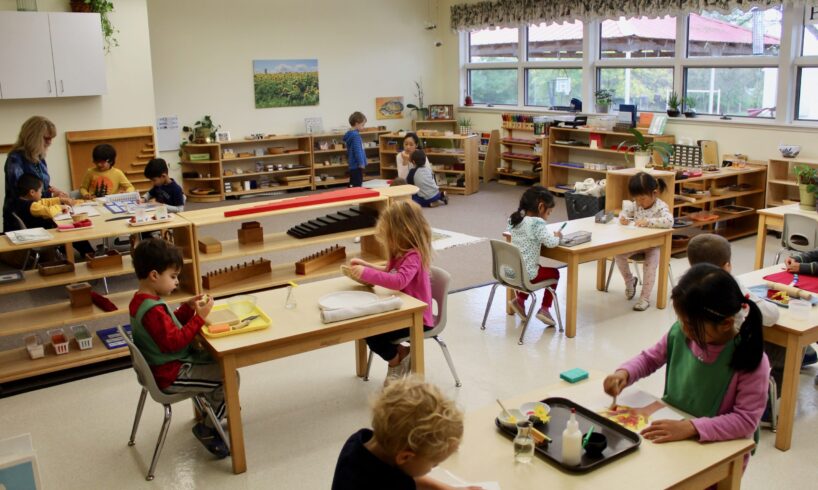
A group of Ohio economists believes a statewide universal pre-kindergarten program would boost the state’s economy and be important as a workforce development aide, according to a recent survey.
Scioto Analysis, an economic and public policy group based in Columbus, polled 26 economists, and 22 agreed the program would grow the economy, reduce poverty and improve both graduation rates and enrollments.
“Of the 24 economists who believed a universal pre-K program would grow the economy, many emphasized the importance of pre-K as a workforce development program. They focused on the importance of training students at young ages and emphasized the strong empirical evidence in support of this claim,” the report said.
Senate Bill 318, introduced in the Ohio Senate in late March and assigned to the Primary and Secondary Education Committee on April 1, would require universal preschool if Congress appropriates funds.
Sponsor Sen. Teresa Fedor, D-Toledo, wants to use Ohio’s expected $3.3 billion take from the federal Build Back Better Act earmarked for child care, universal pre-K programs and infrastructure.
“Preschool provides stability and instruction to children at the most impressionable time in their lives. However, unaffordable or inaccessible childcare has long affected parents’ – particularly mothers’ – ability to balance their careers and families,” Fedor said. “Until parents can return to work knowing that their children can be safely cared for, they will not be able to fully participate in the labor market. It is time for us to support working Ohioans and invest in our future generations.”
A Vanderbilt University study released in February examined Tennessee’s voluntary pre-K program and found students who enrolled underperformed their peers in a control group who did not participate in pre-K. It measured results on statewide achievement tests and disciplinary data.
“States need to investigate what is going on with their programs rigorously to see where practitioners and children could use more support,” Kelley Durkin, assistant professor or teaching and learning at Vanderbilt and the study’s lead author, wrote. “An unfair expectation is being placed on pre-K to create large, long-term effects when there is so much that happens in subsequent schooling after pre-K and outside of the school day during pre-K.
Scioto Analysis’ survey asked economists if the benefits of a universal pre-k program would outweigh the economic costs. The majority of those who responded agreed it would.
“The evidence clearly shows that investment in providing pre-kindergarten improves earnings down the road enough to justify the expenditure just on those grounds. Also, parents could more easily seek employment, paying in more tax dollars,” Bob Gitter, professor at Ohio Wesleyan University, said.
University of Cincinnati professor Michael Jones pointed to the Vanderbilt study as a concern, however.
“There are so many ways to implement these programs, that the devil is really in the details. We’ve seen some programs with great returns, but the recent research from Vanderbilt showing negative returns to universal pre-k is concerning,” Jones said.
The first committee hearing on SB 318 has not been set.
This article was originally posted on Ohio’s universal pre-K proposal receives mixed reviews